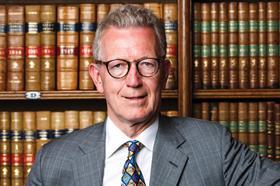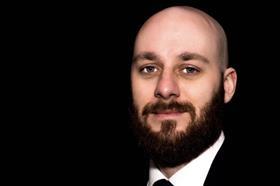Simon Davis, Law Society president, London

'Working from home has been unexpectedly challenging. I thrive off other people’s company, and miss hugely visiting firms and spending time with solicitors and leaders in numerous fields. I have gone from having lunch with Richard Susskind to trying to eat a bap while puzzling why the Zoom camera has replaced me with a much older and greyer gentleman. My family walks past my ‘bedofficeroom’ and sees what work involves. “All you do is chat to people,” says my wife. “Is that really what you do all day?” Trying to explain that I have in fact just been talking to the lord chancellor about the plight of legal aid practitioners does not cut the mustard. On a brighter note, this awful virus seems to have transformed the way in which so many people now talk to each other. There is much more warmth, informality and an attitude of “how are we going to sort this?” rather than “the problem with that is…” So, while I may not relish my new two minute commute I revel in this new can-do world.'
Eugene McQuaid, EU regulatory & public affairs consultant, Freshfields, Brussels

'When you are used to operating in a very face-to-face environment, such as is the case when you represent clients’ interests before the EU institutions in Brussels, it is very strange to sit at your desk all day. However, I have been surprised by how quickly ‘the Bubble’ (a colloquialism for the policy-making environment in Brussels) has adjusted to doing things from afar and how popular virtual coffees and conferences are proving to be (although I do miss my regular barista-made pistachio macchiato). In times like these, you also realise how important it is to have a great team, and we are certainly very lucky in that respect!'
Stephen Davies, Tuckers Solicitors LLP, London
'Police and defence lawyers have a duty, like all citizens, to protect the NHS.

Asking the investigating officer, or even the custody sergeant, inspector, chief inspector or a superintendent to recalibrate their approach to policing during a pandemic is both common sense and necessary. This involves making representations about the necessity to interview and pursue virtual work-arounds for serious offences where the police feel it is necessary to interview in the usual way despite the lockdown.
Sadly, my experience suggests the infrastructure of the police estate is not consistent in its ability to appropriately manage virtual interviews. There are considerable concerns regarding the protection of legal professional privilege. As for necessity, representations from the defence seem to fall on deaf ears.
The Protocol issued by the NPCC, CPS, The Law Society, CLSA and LCCSA is working to an extent, however there are still areas of poor practice which is putting us at risk.
It is frustrating, stressful and utterly draining when one makes common sense representations for the benefit of society, only for them to be ignored - thus jeopardising people’s health and safety. Criminal law does not discriminate, and neither does a virus.'
*The Law Society is keeping the coronavirus situation under review and monitoring the advice it receives from the Foreign & Commonwealth Office and Public Health England.































1 Reader's comment